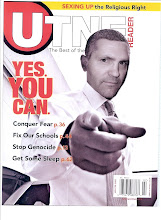Have you ever driven somewhere, gotten there, and forgot
about the last minutes of the drive? You know that you were
driving. But your mind must have been somewhere else, since
you can't really remember the turns you made, the lights you
stopped at, etc.
But, I'll bet that never happens to you when you're lost.
When lost, your brain is working overtime to figure out what
to do next.
When I recently interviewed Dr. Neale Martin, he explained
that the difference in the two situations has to do with
which part of your brain you were mostly using. When going
on a routine drive, perhaps from home to work or vice-versa,
you primarily use your subconscious or habitual mind. But
when you are lost, or on the phone while driving, you
primarily use your conscious or executive mind.
Importantly, as Dr. Martin lays out in his book "Habit:
The 95% of Behavior Marketers Ignore," your subconscious or
habitual mind controls the vast majority of human behavior.
For example, when you reach for a carton of milk from the
supermarket, do you really think that much about it? Do you
compare the different brands of milk and think "maybe today
I'll try something new?" Or do you simply pick the same
carton of milk you chose last time, and the time before, and
the time before. Most of us do the latter.
Understanding these habits is critical to entrepreneurs who
want to effectively market their products and services. For
instance, once you sell a product or service, you should
focus on ways to get the customer to buy again and again
from you. According to Dr. Martin, once they buy seven times
from you, buying from you becomes habit.
And so they buy again, and again and again. Until you do
something like raise your prices or interrupt their service,
which causes their executive mind to kick in and consider
alternatives.
Likewise, when marketing a new product, you need to make
sure it jives with people's habits. For example, if people
are used to doing something one way, asking them to do it
another way, even if that way is better, is oftentimes
difficult. Entrepreneurs must make adopting their products
and services as easy as possible and ensure that they don't
contrast sharply to consumers' habits.
So, the next time you are driving and forget where you are
or what you are doing, know that you don't have a Swiss
cheese brain. Rather, you are so used to what you are doing
that you're relying on your habitual mind. And remember, as
a marketer, you must realize that your customers are also
frequently using their habitual minds when making buying
decisions. So, figure out ways to make buying your company's
products and services their habit.
To Your Success!
Subscribe to:
Post Comments (Atom)

No comments:
Post a Comment